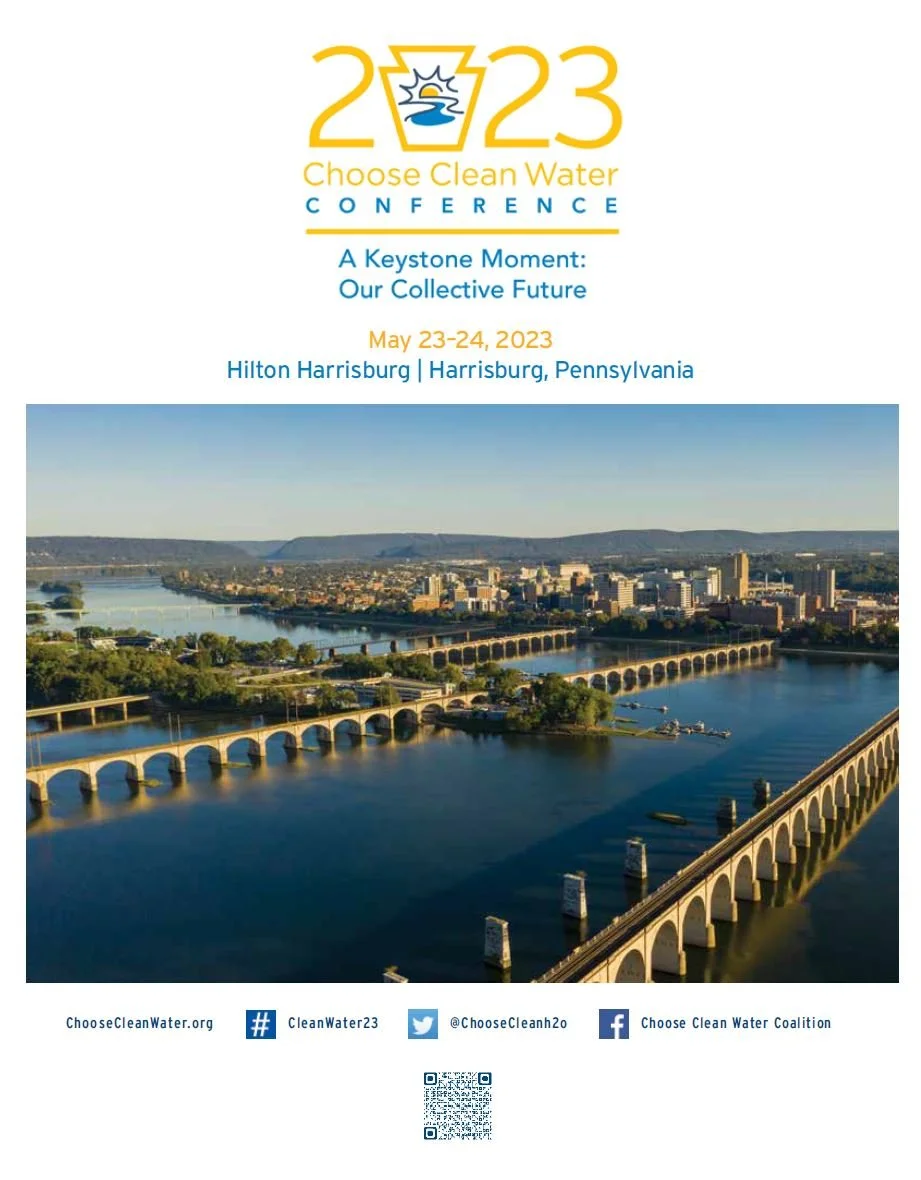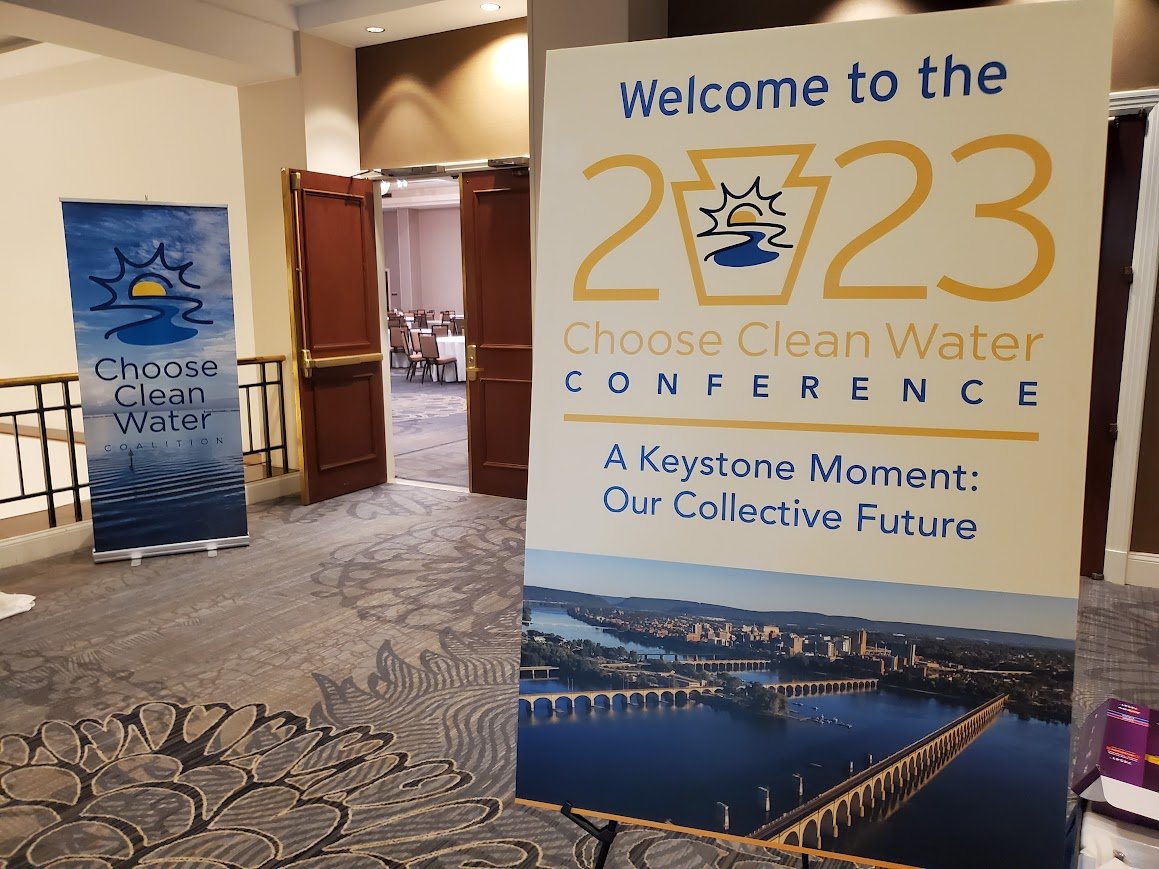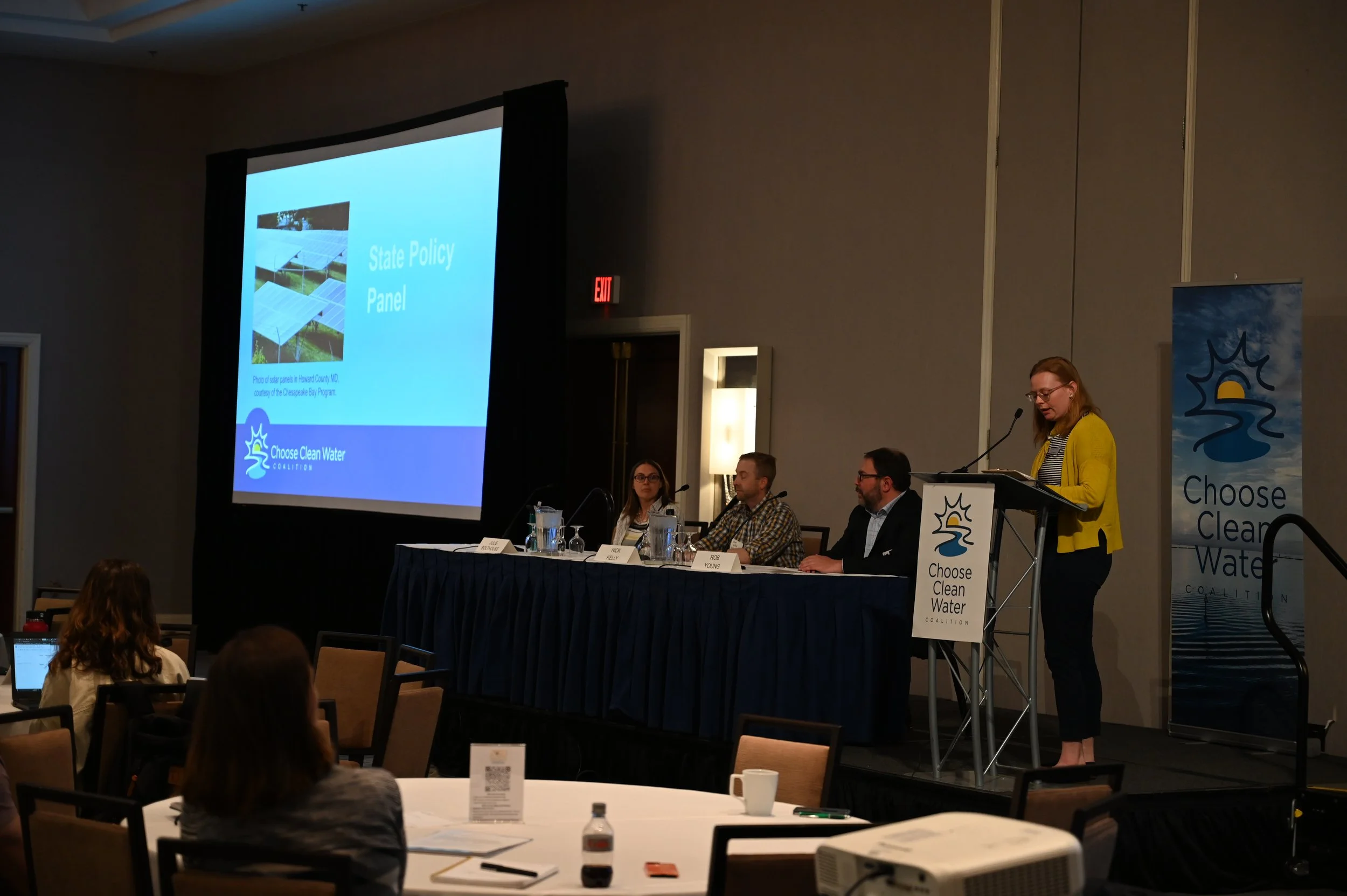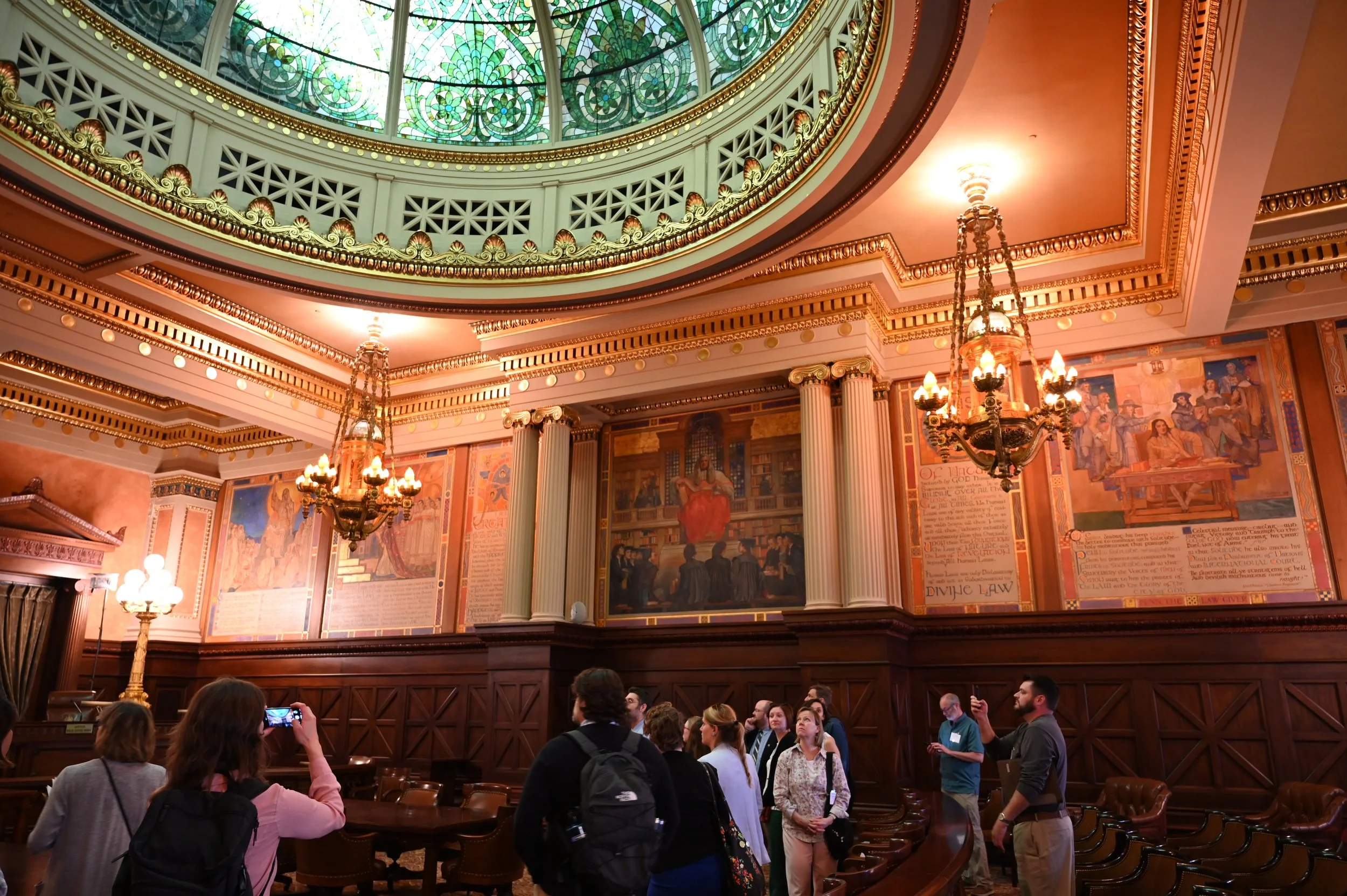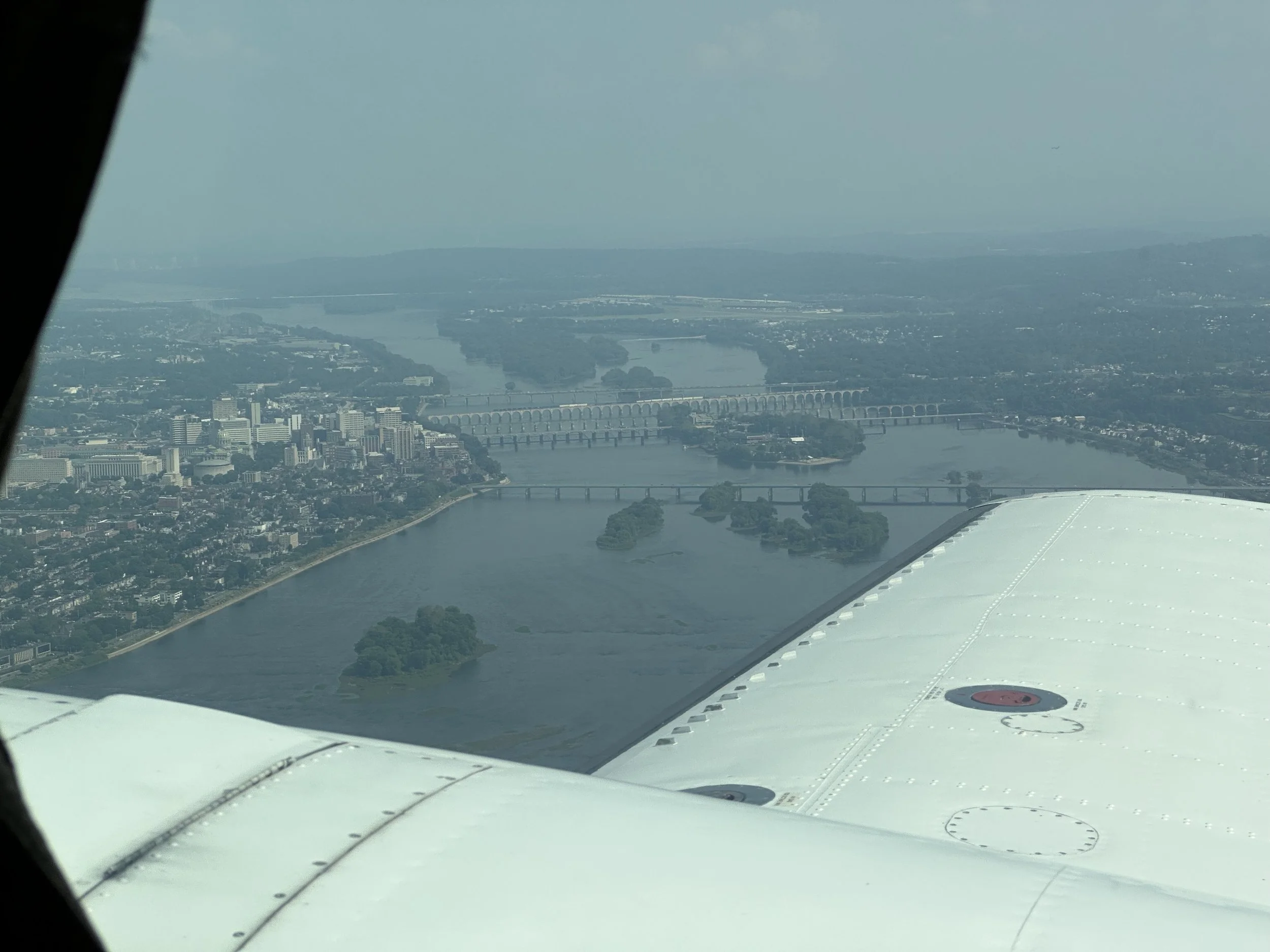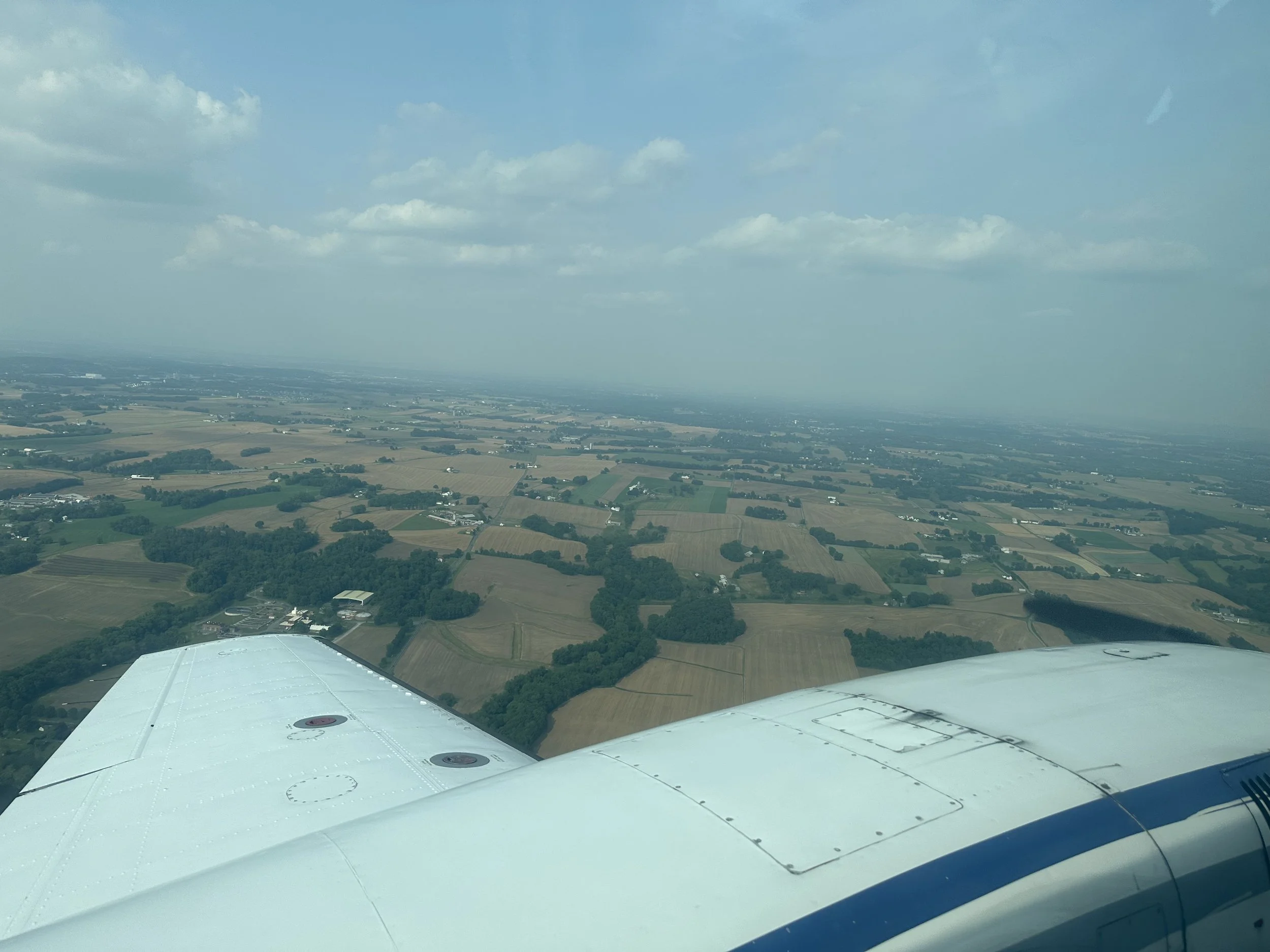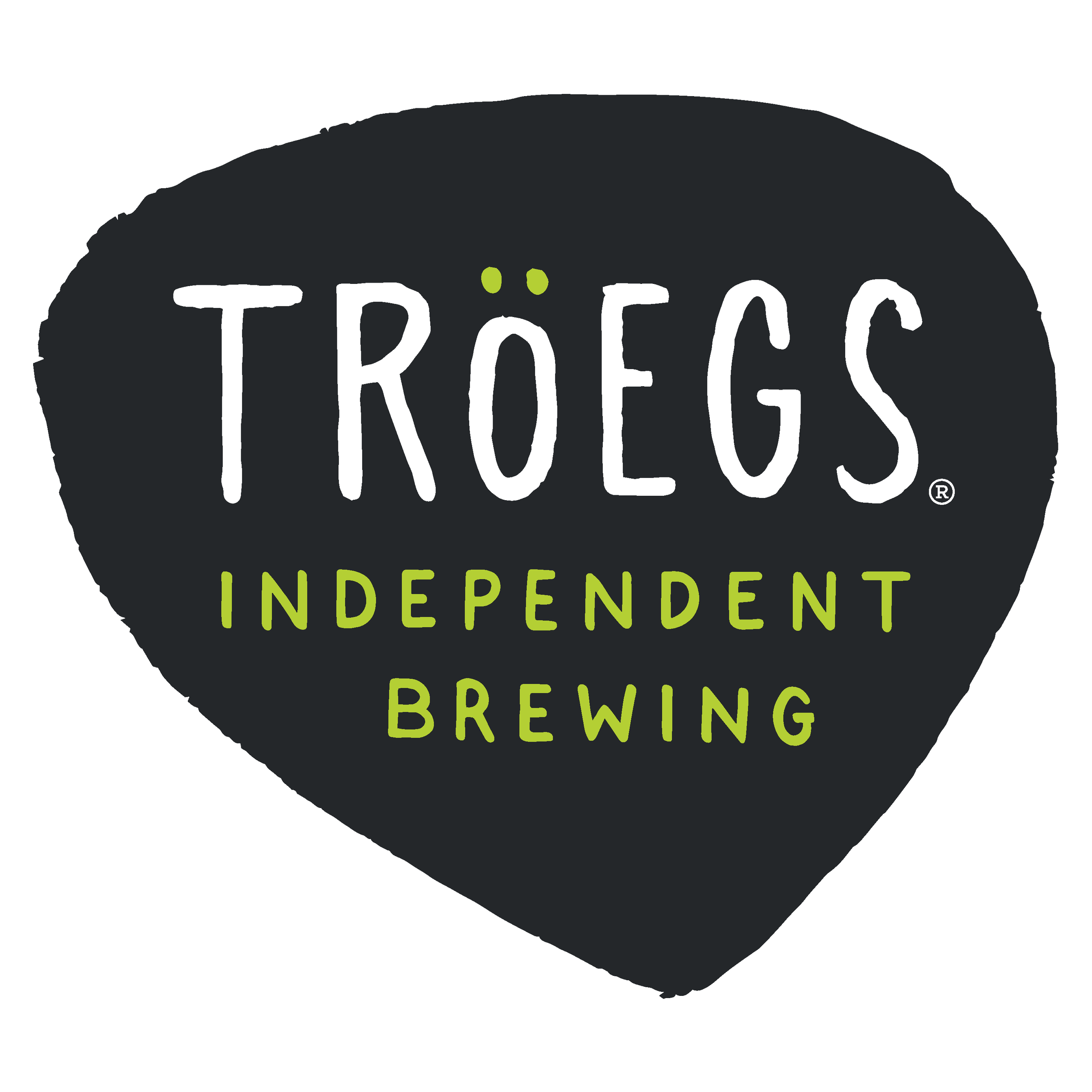
2023 Choose Clean Water Conference Recap
Each year, the Coalition's Choose Clean Water Conference provides a two-day forum for participants to learn about the most important and up-to-date Chesapeake restoration issues, network with fellow Chesapeake Bay supporters and activists, develop strategies to advance federal, regional and local restoration goals, and learn from successes.
For our 2023 conference, we convened in Harrisburg, Pennsylvania, exploring the theme, A Keystone Moment: Our Collective Future. With the 2025 deadline rapidly approaching to have all pollution reduction practices in place as part of the Bay restoration effort, we met at a critical time in the restoration effort of the Chesapeake Bay and the rivers and streams that feed it. We also gathered in the Keystone State for the first time since 2018, providing the platform to highlight the challenges, opportunities, and lessons headwater states have to inform us in our work for clean water.
But it's more than just Pennsylvania. The size of the Chesapeake Bay watershed is vast, covering 64,000 square miles and including parts of six states and Washington, D.C. All of us need to work together if we are to realize clean water for the 18 million people whose local waterways feed the Bay. This conference sought to unite our Coalition of more than 280 nonprofit organizations. We hope the sharing of new tools, resources, and experiences—all while building and cultivating critical relationships—helped equip and inspire conference attendees to accelerate their work for clean water.
We also convened the second-ever “ForumPlus” the day before the official beginning of the conference. An afternoon seminar the Coalition coordinated with the Alliance for the Chesapeake Bay, this year’s ForumPlus focused on solar siting. With eight speakers from throughout the watershed, the ForumPlus took a deep dive into this emerging issue that has many impacts, realized and potential, on local water quality.
Photos by Carolyn Millard and Drew Robinson unless otherwise noted.
Full playlist of plenaries and recorded sessions are available:
Thank You to Our Sponsors!
The Choose Clean Water Conference is important to our Coalition members as it is an opportunity for participants to learn about innovative restoration approaches from experts, engage in discussions with other attendees from different parts of the watershed, and see on-the-ground examples of local work. But this gathering was not possible without sponsors partnering with us to provide a unique and powerful experience to attendees.
We are so grateful for the 2023 Choose Clean Water Conference Sponsors!
Susquehanna Sponsor - $10,000
Juniata Sponsors - $5,000
Lackawanna Sponsors - $2,500
Conodoguinet Sponsors - $1,000
American Dairy Association North East
Blue Water Baltimore
Conservation Voters of Pennsylvania
Environmental Defense Fund
Environmental Quality Resources
The Hatcher Group
Nature Forward
PennFuture
Potomac Conservancy
Southern Environmental Law Center
SouthWings
Virginia Conservation Network
Virginia Environmental Endowment
Virginia League of Conservation Voters
Waterkeepers Chesapeake
Whitaker Center
Swatara Sponsors - $500
Alliance for the Shenandoah Valley
Anacostia Watershed Society
Chesapeake Bay Trust
Chesapeake Legal Alliance
The Dairy Alliance
ELA Group, Inc.
GreenSmith PR
James River Association
Lackawanna River Conservation Association
Land Trust Alliance
Lower Susquehanna Riverkeeper Association
Megan Gallagher
National Aquarium
Octoraro Native Plant Nursery
OpinionWorks
Princeton Hydro
Trout Unlimited
West Virginia Rivers Coalition
Monday, May 22
1:30 p.m.-4:30 p.m. ForumPlus
Siting Solar: An Understanding of Solar Fields in the Bay Watershed
Join the Choose Clean Water Coalition and the Alliance for the Chesapeake Bay for an afternoon seminar on the state of large-scale solar siting in the Chesapeake Bay watershed. With an increasing demand for renewable energy, the quantity of large solar fields in the Chesapeake Bay watershed is on the rise. Land use conversion from agriculture and forest land to solar fields will have water quality and quantity effects. Gathering the non-profit environmental sector and leaders from state agencies and local governments, we will examine where solar fields are placed based upon the implications of different zoning policies in various jurisdictions. We will share solar siting case studies from throughout the watershed, identifying best practices and pitfalls to avoid. With feedback from attendees, we will discuss opportunities for collaboration and designate next steps our community can take to support regions in making informed land use decisions that have positive benefits on local water quality.
*Note: Attendance at the ForumPlus is free and does not require attending the Choose Clean Water Conference May 23-24. However, registration is required.*
Agenda
1:30-1:45—Welcome and Introductions
Drew Robinson, Senior Communications Manager, Choose Clean Water Coalition
1:45-2:15—Background on Solar Siting in the Chesapeake Bay Watershed
Joseph Conklin, Extension Educator, Penn State Extension
2:15-2:25—Date Presentation on Solar Siting Trends
Mike Evans, Senior Data Scientist, Chesapeake Conservancy
2:25-3:00—State Policy Panel
Rob Young, Energy Program Specialist, Pennsylvania Department of Protection
Nick Kelly, Regional Program Chief, Critical Area Commission for the Chesapeake & Atlantic Coastal Bays
Julie Bolthouse, Director of Land Use, Piedmont Environmental Council
Jenny McGarvey, Capacity Building Initiative Director, Alliance for the Chesapeake Bay (Moderator)
3:00-3:15—Break
3:15-3:45—Case Studies
Kate Wofford, Executive Director, Alliance for the Shenandoah Valley
Bobby Hughes, Executive Director, Eastern Pennsylvania Coalition for Abandoned Mine Reclamation
Carol Bean, Agricultural Specialist, Eastern Shore Land Conservancy
Lauren Sauder, Capacity Building Projects Manager, Alliance for the Chesapeake Bay (Moderator)
3:45- 4:15—Town Hall
Moderated by Sara Ramotnik, Senior Membership & Program Coordinator, Choose Clean Water Coalition
4:15-4:30—Closing
Moderated by Sara Ramotnik, Senior Membership & Program Coordinator, Choose Clean Water Coalition
Tuesday, May 23
8:00-9:00 Breakfast and Registration Opens
9:00-9:45 Welcome and Opening Plenary
Welcome to the 2023 Choose Clean Water Conference!
Mariah Davis, Acting Director, Choose Clean Water Coalition
Molly Parzen, Executive Director, Conservation Voters of Pennsylvania
Secretary Cindy Dunn, Pennsylvania Department of Conservation and Natural Resources
10:00-11:45 Workshops and Sessions
10:00-11:45
Workshop: Interest Based Communication in Conservation
Molly Brown, Chesapeake Legal Alliance
Angela Haren, Chesapeake Legal Alliance
Patrick DeArmey, Chesapeake Legal Alliance
The ability to communicate and form creative, sustainable solutions with others is foundational to our fight for clean water and healthy communities. This workshop will introduce participants to the principles of interest-based communication–a tool that helps people create and collaborate around issues that traditionally cause disagreement and conflict. By developing a better understanding of the interests involved in a situation, participants learn to build value out of disagreement and find solutions through communication, collaboration, and creativity.
10:00-11:45
Workshop: A Watershed Understanding of Fracking Impacts in Pennsylvania
Matt Kelso, FracTracker Alliance
Ted Auch, FracTracker Alliance
Brook Lenker, Keystone Trails Association
This workshop is an exploration of the impacts of oil and gas drilling on local water quality in Pennsylvania’s Susquehanna River Basin. In recent years, FracTracker Alliance has conducted in-depth analyses of the watersheds for Pine Creek, Loyalsock Creek, Lycoming Creek, and Towanda Creek. The impacts of fracking on the landscape, water, recreation, and people in these communities are profound. We’ve also conducted aerial reconnaissance of these watersheds and have found that viewing this industry from 1,000 feet gives a true sense for the totality of impacts including pads, compressor stations, access roads, and more. Join us to explore the consequences of fracking and discuss our path forward to protect and restore local rivers and streams.
10:00-11:45
Workshop: Data Centers in the Chesapeake Bay Watershed
Kyle Hart, National Parks Conservation Association
Julie Bolthouse, Piedmont Environmental Council
Will Halnon, Chesapeake Legal Alliance
Data centers are one of the fastest growing industries in the Chesapeake Bay watershed. And this industry has direct consequences on local water quality. As proposals for new data centers have increased and moved beyond planned industrial corridors, localities are often failing to recognize their impacts on regional water supplies, the electric grid, and state and National Parks. The proposals for these massive projects would add incredible amounts of impervious surface throughout the Chesapeake Bay watershed; add electric consumption to the grid; and threaten water quality, climate change mitigation efforts, and land conservation. Join NPCA, PEC, and CLA to learn more about what data centers are, the threats they pose, and strategies to regulate them locally and regionally.
10:00-10:45
Session: A Keystone First: Creating an Agricultural Cost-Share Program in Pennsylvania
Trisha Salvia, Chesapeake Bay Foundation
Kristen Hoke, Chesapeake Bay Foundation
To protect and restore Pennsylvania’s rivers and streams, we need to implement more conservation practices on farms throughout the Keystone State. And after many years of advocacy, Pennsylvania finally created and funded its first state agricultural cost-share program in 2022. But what is the Agricultural Conservation Assistance Program? What is it not? How does it fit in the Clean Streams Fund? And how can we collectively make it a success? Join us to explore these questions and more.
10:00-10:45
Session: Tree Care in Baltimore City
Gabriela Amaya-Williams, Baltimore Tree Trust
Marcus Tuah, Baltimore Tree Trust
As Baltimore’s principal tree planting organization, Baltimore Tree Trust (BTT) works to increase the urban tree canopy by planting trees at a neighborhood scale. Once trees are in the ground, the work continues: ongoing tree care is critical to the success and longevity of any urban forestry project. This presentation will delve into the skills, systems, and tools that BTT uses in a year-round maintenance program built on a foundation of season-specific tree care to ensure that trees planted throughout Baltimore will thrive and play a critical part in protecting local waterways from pollution.
11:00-11:45
Session: Pollinators and Produce: Combining Food Security and Conservation
Lindsey Walker, National Wildlife Federation
Atiya Wells, Backyard Basecamp
Our collective future depends on our ability to design conservation projects that also work towards environmental justice and directly support communities. Funded by an EPA Small Watershed Grant administered by the National Fish and Wildlife Foundation, National Wildlife Federation’s (NWF) Pollinators and Produce project addresses this challenge by combining wildlife conservation with food security and vacant lot restoration in Baltimore. In collaboration with local urban farms and community gardens, NWF is installing pollinator gardens at food-producing sites on previously vacant lots. Participants will learn more about the power of partnerships and intersectional project goals, the critical web of conservation landscapes and community assets, and tools for developing similar projects.
11:00-11:45
Session: Infusing Environmental Action Civics into High School Ecology
Sarah Jennings, Earth Force
Cara Huerbin, Mifflin County High School
Join Earth Force and a Fish & Wildlife teacher from rural Pennsylvania sharing about their strategic partnership that empowers young people to take civic action on environmental issues in their community. This process is currently taking place in Mifflin County, where hunting and fishing is integral to students' lives but many students struggle academically and are frequently cited with “behavior issues.” Recently, Mifflin County offered science electives based on student interest. One teacher has created strategic partnerships with the Susquehanna River Basin Commission and Earth Force in order to facilitate a student-led “curriculum” that elevates students' lived experiences to make community-level change.
12:00-1:00 Lunch and Midday Plenary
A Keystone Effort: Fighting for Environmental Justice in Pennsylvania
Winnie Okello, Pennsylvania Department of the Environment (DEP), Office of Environmental Justice
Rafiyqa Muhammad, Pennsylvania DEP Environmental Justice Advisory Board
Mariah Davis, Choose Clean Water Coalition (Moderator)
Environmental stewardship is key to protecting Pennsylvania’s air, land, and water. Developers, corporations, and energy conglomerates continually pursue projects that often times result in harmful environmental outcomes which frequently target and more adversely impact marginalized communities already overburdened by pollution. These projects not only harm the environment but also come with severe consequences to public health, quality of life, and local economies. Join this engaging discussion with our esteemed panelists as they share their experiences and professional perspectives on the importance of effective community engagement and empowerment through advocacy, mobilization, education, and awareness of environmental injustices across the commonwealth of Pennsylvania.
1:15-2:00 Sessions
1:15-2:00
Session: Renaming: Breaking Eggs to Make an Omelet
Eliza Cava, Nature Forward
Amy Ritsko Warren, Nature Forward
At the ripe old age of 125, the oldest independent environmental organization in the Washington, DC region changed its name. Transforming from the Audubon Naturalist Society to Nature Forward, we will discuss the nuts and bolts: gathering feedback (including the haters) and gaining buy-in from members, donors, partners, staff, and the public; funding; working with a branding firm; copyright/intellectual property implications; and marketing the new name. As the first Audubon organization in the U.S. to change its name, we will also explore motivations for the change, the history of our evolving organization, and how we see ourselves positioned to move into the future.
1:15-2:00
Session: Conowingo Court Victory and the TMDL
Betsy Nicholas, Potomac Riverkeeper Network
Ted Evgeniadis, Lower Susquehanna Riverkeeper Association
The Chesapeake Bay received a major victory when the Constellation Power Corporation’s license to operate Conowingo Dam was vacated by the court for failure to protect clean water. But much work remains to address the significant pollution threat from the Dam. Join us to discuss what this victory means for the larger Bay restoration effort and how we can use this win to accelerate progress.
1:15-2:00
Session: PL 566, Mine Lands, and Legacy Sediment Repurposing
Joe Sweeney, Water Science Institute
Denise Coleman, U.S. Department of Agriculture, NRCS
Public Law 566 is an important new funding source for Pennsylvania. The Natural Resources Conservation Service (NRCS) and Water Science Institute are working collaboratively to develop a pilot approach in the Chiques Creek watershed that utilizes lidar data to identify stream restoration hotspots and develop management strategies and funding to address related water quality initiatives. This approach will generate millions of pounds of high-quality soil (legacy sediment) that is a cost sink for project funding. NRCS is funding several programs to identify new purposes for legacy sediment repurposing that includes abandoned mine reclamation with a focus on restorations that target potential environmental justice areas in the Commonwealth. This presentation will discuss current progress and challenges with these initiatives.
1:15-2:00
Session: The Bay Watershed's National Lead Buying Water Quality Outcomes
Harry Huntley, Environmental Policy Innovation Center
This presentation will discuss new programs in Maryland and Pennsylvania: the Clean Water Commerce Program and Clean Water Procurement Program. These first-of-their-kind, multi-million-dollar programs use Pay for Success contracts to directly purchase the most cost-effective guaranteed pollution reductions. The Environmental Policy Innovation Center’s Senior Agriculture Policy Analyst will discuss the potential of outcomes-based programs to achieve clean water goals faster and cheaper, walk through how you can apply for this funding, and share the vision of the Bay watershed as a model for the world in addressing the pernicious problem of nonpoint source pollution.
1:15-2:00
Session: Leaders Need Not Be Lonely*
Brenna Goggin, River Network
It can be lonely at the top—but you’re not alone! In this discussion-based session, Executive Directors will examine a wide range of topics impacting nonprofit leadership today. Using creative storytelling techniques, leaders from across the watershed will have an opportunity to engage with their fellow colleagues, share a challenge they face in their organization, and hear from others on their experiences. We invite all Executive Directors, regardless of how long they’ve served in the position, to join us and be open to sharing, listening, and asking thoughtful questions.
*This session is specifically targeted toward Executive Directors of organizations.
2:30-5:30 Field Trips
Susquehanna Discovery Flight
Laura Early, SouthWings
With SouthWings, general aviation aircraft become flying classrooms. This field trip offers an educational flight excursion to uniquely illuminate the cumulative factors that either contribute to or undermine the health of the Susquehanna River watershed. A local resource expert will accompany each aircraft to lead discussions and lend expertise.
Notes: Space is limited! Participants are required to complete/sign a waiver prior to participation.
City Beautiful H2O: A Tour of Harrisburg Greening
Claire Maulhardt, Capital Region Water
With Capital Region Water as your tour guide, come see the breadth of community greening work happening in Harrisburg. We will visit four unique projects that are representative of the broader City Beautiful H2O Program Partnership Initiatives: Enhancement to the Capital Area Greenbelt with Stream Restoration, Greening Neighborhoods through the Transformation of Vacant Lots, Green Streets connecting to the Historic City Beautiful, and Green Stormwater Management through Wholistic Parks Planning.
Paddle the Susquehanna!
Matt DeLuca, Susquehanna Outfitters
Ted Evgeniadis, Lower Susquehanna Riverkeeper Association
Take a break and go play outside! Join Susquehanna Outfitters in Wormleysburg and experience the mighty Susquehanna! Shuttles will take you from their shop to Siebert Park along the Conodoguinet Creek in Camp Hill. Watch herons hunt the shallows and hear smallmouth splash the surface as you paddle down the Conodoguinet and into the Susquehanna. Take in gorgeous views of Harrisburg and the Capitol as you make your way past a series of islands and back to the Outfitters. All gear is provided, including kayak, PFD, and paddle.
Note: Participants are required to complete/sign a waiver prior to participation.
Meadows and Beer with Tröegs and the Alliance
Jenna Mackley, Alliance for the Chesapeake Bay
Adam Miller, Alliance for the Chesapeake Bay
In collaboration with the Alliance for the Chesapeake Bay, Tröegs Independent Brewing, the official beer sponsor of the 2023 Choose Clean Water Conference, invites you on a tour of their beermaking process and their native wildflower meadow in the making. Equal parts educational and fun, tour attendees will see how Tröegs brews their beer (with the option of a taste test or two) and learn about how converting lawn to native meadow habitat benefits local waterways and ecosystems. Note: Each field trip attendee will receive one beer but are responsible for purchasing any additional food or beverages.
Pennsylvania Capitol Tour
Ezra Thrush, Pennsylvania Department of the Environment
Get a behind-the-scenes look of what President Theodore Roosevelt called “The handsomest building I ever saw.” Walk through the halls where state legislation is crafted and see the chambers of the House, Senate, and State Supreme Court, as well as the Governor's office. With beautiful architecture incorporating various Renaissance designs, attendees will leave with a greater appreciation for this uniquely American building. Attendees will have to pass through security and are encouraged to limit belongings they bring.
Lancaster County Dairy Farm Tour
Ron Ohrel, American Dairy Association North East
Dairy farmers use numerous practices to protect local water quality and their downstream neighbors. There's more work to be done, but we share the same goals for clean water and a healthy environment. On this wagon tour of family-owned Brubaker Farms, you'll learn first-hand about the farm operation and its many environmental practices, which include an anerobic digester, solar panels, riparian buffers, manure storage and separation, soil health practices, water recycling, and more. The tour is rain or shine, so bring your inclement weather gear. Close-toed shoes are required.
A Sportsman's Impact on Conservation Film Showing
Emily Baldauff, Trout Unlimited
Nikki Ghorpade, Ducks Unlimited
Enjoy a film showing of “Wings over Water” at the Whitaker Center. The film represents remarkable video footage of North America's amazing waterways and flyways carved out after the last ice age. After the film attendees will hear about how the PA Sportsmen & Women Policy Workgroup was created and how this newly found partnership has created a unique approach to conservation advocacy through a sportsman lens in Pennsylvania, and how the group has been effective. The Whitaker Center is next to the hotel, so attendees should expect a very short walk.
Harrisburg: One City, Two Very Different Streams
Brian Gish, Chesapeake Bay Foundation
Two streams flow through Harrisburg: Paxton Creek and Spring Creek. Despite their adjacency and urbanization (73 percent and 86 percent developed land, respectively), these streams tell two very different stories. Paxton Creek has been subjected to extreme hydromodification, minimal buffering, vast impervious landcover, and for all intents and purposes, is dead. Conversely, Spring Creek, flanked by buffers, restoration projects, and the regional greenbelt, is thriving, even boasting a vibrant population of wild trout. On this field trip, we'll explore these different outcomes and examine how, given the right policies, even streams in developed areas can thrive. Note: Field trip participants are encouraged to wear comfortable shoes as this walking tour will include 3.2 miles of walking.
6:00-10:00 Evening Reception
Join the Coalition at Historic King Mansion for our evening reception as we reconvene for the best clean water networking event of the year! The reception will feature delicious local fare from JDK Group Catering and beer donated from Tröegs Independent Brewing.
Wednesday, May 24
8:00-9:00 Breakfast and Registration Opens
9:00-9:45 Morning Plenary
What is, “A Snot Otter?”: Jeopardy, Networking, and Open Forum
Choose your own adventure and select from these options—
Chesapeake Bay Watershed Jeopardy
Test your clean water knowledge! Jeopardy contestants will divide into geographical teams and the Coalition’s own Alex Trebek Peter Marx will lead participants through a fun board of Bay watershed-related trivia.
Networking Bingo
Get to know your fellow conference-attendees and play a special version of Bingo diving into our work for clean water.
Open Forum
Not up for a game? The ballroom will remain open for attendees to connect.
10:00-11:45 Workshops and Sessions
10:00-11:45
Workshop: Removing Coal Ash from Our Waterways
Betsy Nicholas, Potomac Riverkeeper Network
Dean Naujoks, Potomac Riverkeeper Network
Serena Moncion, Potomac Riverkeeper Network
Jason Litten, Frostburg State University
Coal fired power plants are closing throughout the region, but they are leaving all of their wastes in place to contaminate our groundwater and surface water. Through GIS analysis and mapping, we have identified the locations and quantities. Now we face the challenge of removing these contaminants from our waterways. Join us in this workshop to learn more about the consequences of coal ash and discuss the strategies and tactics to protect communities from this threat.
10:00-11:45
Workshop: Modernizing Infrastructure: A Panel Discussion on Stopping Sewer Overflows
Renee Reber, National Parks Conservation Association
Ted Evgeniadis, Lower Susquehanna Riverkeeper Association
Lia Mastropolo, American Rivers
Tom Pelton, Environmental Integrity Project
Evan Isaacson, Chesapeake Legal Alliance
When it comes to water pollution in the Chesapeake Bay Watershed, nitrogen, phosphorus, and sediment often take center stage. Many older cities and towns, including Harrisburg and Baltimore, have aging and outdated infrastructure polluting waterways with sewage during “combined sewer overflow” (CSO) or “sanitary sewer overflow” (SSO) events. When these systems experience events beyond their capacity, they can discharge directly into waterways untreated. This panel discussion will feature case studies, including what's being done to address CSOs and SSOs, what are the hurdles, and how affordability and access to funding plays a role.
10:00-11:45
Workshop: Growing Conservation through the Farm Bill
Ben Knuth, National Wildlife Federation
Duane Hovorka, National Wildlife Federation
Lekha Knuffman, National Wildlife Federation
Michael Mehrazar, PennFuture
More than half of the land in the contiguous US is farmed or ranched. Farmland makes up one-quarter of the Chesapeake Bay watershed, but runoff from agriculture is by far the largest—and perhaps most intractable—source of water pollution in the Bay and across the Nation. Learn how you can influence the federal Farm Bill, which drives day-to-day decisions on farms and ranches that have a direct impact on the water you drink and the health of our rivers, estuaries and oceans.
10:00-10:45
Session: Eroding History: The Disappearance of Black Communities
Rona Kobell, Environmental Justice Journalism Initiative
Join us for a 28-minute film and discussion with the filmmaker about the Eastern Shore's eroding history and how you - scientists, policy makers, and advocates - can help change the trajectory. Climate change will harm the planet in many ways, but it is going to harm it disproportionately. And few places illustrate that as much as the Black communities on the Eastern Shore, where so much history has already washed away. The Eastern Shore’s rate of sea level rise is about twice that of the rest of Maryland, and is the second highest in the United States after Louisiana. Within the Shore, the water is rising the fastest and the land is sinking the quickest in Dorchester County. Half of the county’s “mostly the southern part” will be underwater by 2100, according to predictions from the University of Maryland Center for Environmental Science. Somerset County is next on the list. Our film will show the ways that Dames Quarter, on Deal Island, has suffered, and what are the solutions that could help it and other places.
10:00-10:45
Session: Volunteer Monitoring and Data Interpretation: Stream Team Data Stories
Isabel Ruff, Alliance for Aquatic Resource Monitoring (ALLARM)
Lindsay VanFossen, Alliance for Aquatic Resource Monitoring (ALLARM)
When volunteer monitors transition from doing science to understanding science, there are exponential opportunities for unique impacts and outcomes. Dickinson College’s Alliance for Aquatic Resource Monitoring’s (ALLARM) volunteer monitors, also known as Stream Team, annually perform a facilitated data interpretation process aiming to identify compelling stories from the monthly water quality data they have collected. This session will explore the benefits of volunteer engagement in the data interpretation process and volunteer findings from this process. Participants will also have the opportunity to experience the guided data analysis themselves.
11:00-11:45
Session: Utilities Workforce Development and the Future of Water
Amanda Giorgio, Southeast Rural Community Assistance Project (SERCAP)
Often, we think of conservation, environmental justice, and workforce development as separate concerns. However, the influx of funding for infrastructure is providing ample opportunity to execute projects that directly impact drinking water, wastewater, equitable access to resources, and environmental conservation. Local community workers are essential to making these projects viable and sustainable. Because of trends in workforce turnover, there is also a real opportunity to integrate conservation and environmental justice concerns into workforce development and training. So, bring your ideas to this session, where we anticipate a lively discussion about how to support local water industry workers!
11:00-11:45
Session: Empowering Underserved Communities in Resiliency Actions
Briana Yancy, National Oceanic and Atmospheric Administration (NOAA)
Alisa Wilson, Skeo Solutions
The Chesapeake Bay Program’s Habitat Goal Implementation Team launched a successful pilot called the Targeted Outreach for Green Infrastructure in Vulnerable Areas (TOGI) project in 2021. This presentation will share how state and federal agencies came together to support socially and economically vulnerable communities in areas susceptible to climate change. Learn how trust was built with local leaders to design projects that met both community needs and watershed restoration goals. This project illustrates how to think beyond stormwater when designing green infrastructure stormwater strategies, find ways to adapt to evolving needs and challenges in community-based planning, and recognize historical inequities when planning for the future.
12:00-1:00 Lunch and Midday Plenary
2025 and Beyond: What's Next for the Chesapeake Bay Cleanup?
Allyson Gibson, Lancaster Clean Water Partners
Adam Ortiz, U.S. Environmental Protection Agency
Chris Thompson, Lancaster County Conservation District
Lara Lutz, Bay Journal (Moderator)
The 2025 deadline for Chesapeake Bay cleanup goals is rapidly approaching. Bay Program assessments show that the region is unlikely to meet many of those goals, including targets for nutrient pollution. That raises many questions. How are we going to accelerate progress? And what lies beyond 2025? How will we define success moving forward? What issues need more attention and new thinking? What resources are needed? Hear the perspectives of leaders working for clean water address these and other questions as the region faces a keystone moment in protecting the Bay and the streams and rivers that feed it.
1:15-2:00 Sessions
1:15-2:00
Session: Navigating Waterway Access
Tim Fitchett, Fair Shake Environmental Legal Services
Meagan Niebler, Fair Shake Environmental Legal Services
Accessing the waterways in our communities is important for mental, social, and physical health. Yet there are often substantial obstacles to creating that access. This session is designed to explain the importance of waterway access, the legal hurdles to gaining waterway access, and outline various methods to engage municipalities and the public in overcoming those hurdles. We intend to break down those obstacles and give the attendees tools to take out into their communities that will help them secure access for the public.
1:15-2:00
Session: Brook Trout: Pennsylvania’s Water through a Fisheye Lens
Brian Gish, Chesapeake Bay Foundation
In 1970, Pennsylvania adopted the brook trout as its state fish. A “keystone” species in every sense, the past, present, and future of the brook trout encapsulate the Commonwealth’s complicated relationship with the waters that sustain us both. The only salmonoid native to Pennsylvania’s inland rivers and streams, the brook trout’s connection to a very special molecule represents a thread that ties together nearly every aspect of water quality in our state. In this session, we’ll take a fun and informative look at this tenacious fish and see how we can choose clean water through a new and novel “fisheye” lens.
1:15-2:00
Session: Building Organizational Capacity through a Grant Training Program
Grace Tucker, Environmental Defense Fund
In 2022, Environmental Defense Fund and Virginia Conservation Network partnered on a grant training program to demystify the grant-seeking process for community-based organizations working on flood resilience in Virginia. Over four months, five organizations met with a professional grant writer to learn about persuasive writing for grant seeking, best practices for funder cultivation, and develop and get feedback on draft proposals. The program resulted in two organizations receiving a five-figure unrestricted grant, with other proposals still pending. This session will cover key outcomes and a framework for success for other groups interested in fundraising capacity-building.
1:15-2:00
Session: Chocolate Milk to Chicken Nuggets: Corporate Sustainability Model
Brittany Smith, Alliance for the Chesapeake Bay
Tyler Walston, Alliance for the Chesapeake Bay
This presentation will highlight the Alliance’s successes in engaging with the agriculture supply chain in sustainability. Since 2015, the Alliance has assisted dairy producers throughout Pennsylvania to leverage existing public funds in order to maximize contributions made by corporate partners towards conservation goals. This successful model is expanding now into the poultry industry. Achieving clean water will require many diverse stakeholders working together to make the greatest impact. We will demonstrate how to replicate the lessons learned from our model and how this model can drive more conservation impact across industries and regions.
1:15-2:00
Session: Tell Your Climate Story: Rising to the Challenge of Effective Climate Communications
Melissa Diemand, Potomac Conservancy
Land conservation and river restoration efforts play an important role in capturing greenhouse gas emissions, mitigating climate impacts, and preparing our communities for a hotter, more extreme future. As trusted messengers, conservation leaders need to effectively communicate about the climate crisis with our audiences and promote nature-based measures as key solutions in our communities. Potomac Conservancy will share best practices when communicating about climate change, audience assessment tools, and key lessons learned from Rising to the Challenge, an online report series on local climate impacts and solutions.
2:15-3:00 Sessions
2:15-3:00
Session: Introduction to the Clean Water Act Playbook
Robin Broder, Waterkeepers Chesapeake
Betsy Nicholas, Potomac Riverkeeper Network
The Clean Water Act gives every person the right and the tools to enforce the law when the government fails to protect clean water. On the heels of the Clean Water Act’s 50th anniversary, the Clean Water Act Playbook was created as a resource for frontline communities so they know how to report pollution and seek assistance. This online resource includes Clean Water Act basics, videos of how communities dealt with water pollution, and links to tools and organizations that can help. This session will introduce the CWA Playbook and solicit feedback for potential improvements.
2:15-3:00
Session: Not So Chicken Little: Concentrated Animal Feeding Operation Permits in Maryland
David Reed, Chesapeake Legal Alliance
Animal Feeding Operations are a significant contributor of nutrient pollution in local waterways. This workshop will review Maryland’s permitting scheme for Animal Feeding Operations and discuss our landmark victory with Assateague Coastkeeper and its potential implications in other jurisdictions and watersheds. We'll explore some similarities and differences with other Chesapeake Bay states and offer an interactive audience discussion of how to address pollution from Animal Feeding Operations throughout the Chesapeake Bay watershed.
2:15-3:00
Session: Closing the Gap: Advocating for Increased Conservation Funding
Michael Mehrazar, PennFuture
Ezra Thrush, Pennsylvania Department of Environmental Protection
It’s no secret that Pennsylvania has lagged behind in its support for water conservation funding. But years of advocacy culminated in historic investments in the 2022-23 Pennsylvania state budget. Join us for a comprehensive look at the process we’ve taken to build greater support for clean water programs. In this session, attendees will learn how to navigate the legislative process, build coalitions, develop a persuasive message, and amplify that message through the media. The session will also feature a group discussion allowing participants to brainstorm how to best apply these tactics to their own circumstances.
2:15-3:00
Session: Funding and Financing Local Water Infrastructure Priorities
Jen Cotting, Environmental Finance Center
Ellen Kohler, Water Center at William Penn
The Environmental Finance Center and program partners are serving as the Water Infrastructure Environmental Finance Center for the Mid-Atlantic for the next five years. Learn more about how our training and technical assistance can help connect your community to the resources, funding programs, and financing strategies that will help you accomplish your local priorities.
2:15-3:00
Session: Grass Roots against Plastic Pollution at Play
Kathleen Michels, Safe Healthy Playing Fields
Plastic sports field and lawn carpeting (a.k.a. synthetic or artificial turf or synturf) is a 'hot mess' of pollutants including PFAS chemicals. They are hotter than asphalt and contain a 'Pandora's box' of toxins from the plastic and tire waste that disintegrates and disperses into air, soil, and water. The carpets are meant to mimic the look of grass, usually for athletic fields or landscaping, but couldn’t be less grass-like in their impact on the environment. This session will educate and discuss a road map for advocacy to keep playfields and yards natural instead of paving with greenhouse gas producing plastic.

